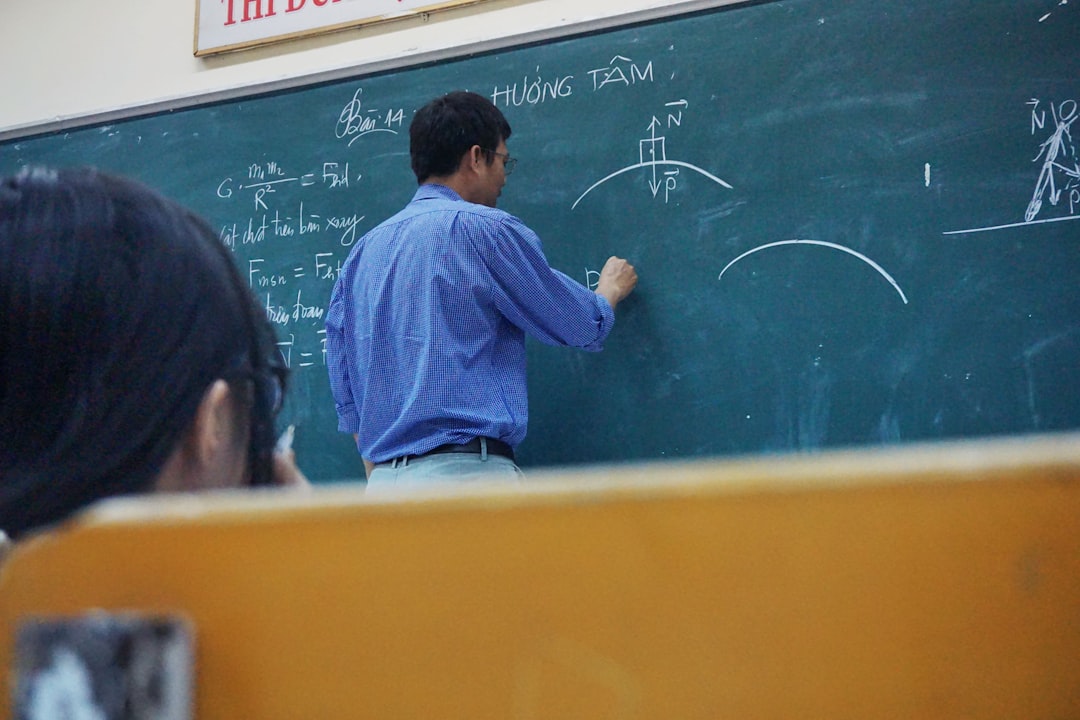On eliminating lectures, a reality-check: Part 3

That essay titled "Should Colleges Really Eliminate the College Lecture?" that appeared in The Atlantic has, so far as I have seen, received mostly a well-deserved blanket of criticism about most of its main points. This is as it should be. I've written two pieces so far on this essay --- here is part 1 and here is part 2 --- mostly focusing on fact-checking the article, correcting its use of definitions, and disentangling some of its more disreputable rhetorical devices. This essay is rapidly becoming old news, which is also as it should be, so I don't want to spend much more time on this; here I just want to poke a few holes in the main point of the article.
What is that main point, you ask? It's not the question in the headline, first of all. We established in part 1 that there is no grand conspiracy among colleges to "eliminate" lecturing, and the very examples pulled in to support this claim actually refute it. Instead, the main thrust of the article has to do with how well instructors in colleges are trained in lecturing. The central question the article asks is:
But is it the college lecture itself that’s the problem --- or the lecturer?
Which is amplified in a following paragraph:
[A]lthough proponents of the movement to move away from the lecture cite data on its ineffectiveness, the debate has failed to take into account the fact that academics are rarely, if ever, formally trained in public speaking.
This claim is just really strange. We have all this evidence stacking up from years of research on pedagogy, a mountain of evidence that active learning is better for students, and the thing to focus on is training in public speaking? To me this seems like looking at study after study of diets composed entirely of fast food versus diets with a balance of proteins and vegetables, and study after study shows evidence that fast food is far more harmful to the human body than the protein and vegetable diet --- and then criticizing the studies because it doesn't take the training of the fast food worker into account. Because, you know, fast food workers are rarely formally trained in the culinary arts. And if they were, and those dietary studies looked at only the burger-flippers and french-fry-makers with real training, then maybe the research would tell a much different story, it is claimed.
Snarkiness aside, I don't think there is any doubt that "academics are rarely formally trained in public speaking". I also don't think there is any doubt that if you were to receive formal training in public speaking, that you would get better at public speaking including classroom lecturing. Right? That's how "training" is supposed to work. By the way: What would the author of the Atlantic piece say is the best way to receive this training? By hearing someone lecture about public speaking? Because after all, that would be the most efficient way to convey information about the subject. But I digress.
So it seems that what the author is actually claiming here, although it's between the lines, is that the research on active learning doesn't control for the quality of the lecture (which training would improve), and implicit is the claim that if those studies did control for quality, we might see a different picture emerge. Not to put words in the author's mouth, but this is the only context in which the lengthy digression on training in public speaking found in the article has any pertinence to the research on active learning and the supposed elimination of lecture. (Which isn't happening.)
It's perfectly good scholarship to question the methodology of the research and think about confounding variables. So let's do that.
In the process of writing my upcoming book on flipped learning, I've gotten the chance to do quite a deep dive into the literature on active learning in general, not just the classics like the PNAS study or the Hake "6000 student" study but many of the smaller, lesser known studies in between. And I can say: The author of the Atlantic piece has a point here. Most of the studies I've read indeed do not control for "quality" of instruction. They tend only to examine one form of instruction versus another.
However, it turns out there are at least a couple of good reasons for this.
First: Early studies on active learning that did control for lecture "quality" found even the best lectures still had little to no effect on student understanding or learning. Take for example this early study (from 1980) on student preconceptions in introductory mechanics. This was one of the studies that eventually led to the invention of peer instruction. It showed that even after taking an entire university-level course on introductory mechanics, the preconceptions of students had about mechanics were basically unchanged from the beginning of the course. The course was taught entirely via lecture, and importantly:
The teacher of the course has received consistently high praise in written evaluations from students for his clarity of presentation, helpfulness, and genuine interest in teaching.
It doesn't say what kind of training that teacher had, nor does it really matter. This was a skilled lecturer who no doubt made things interesting, even inspiring, and students liked both him and his teaching. And they walked away from a semester with this teacher with virtually the same understanding of physics as they did when they walked in the door on day 1.
Another more recent study from 2011 studied student learning from two instructional approaches --- one using pure lecture, the other using a variety of non-lecture, research-based practices. Note:
The control group was lectured by a motivated faculty member with high student evaluations and many years of experience teaching this course. The experimental group was taught by a postdoctoral fellow using instruction based on research on learning.
So, not only was the lecturer giving high-quality lectures, the control group instructor was just a postdoctoral student with presumably very little training or experience in any kind of teaching at all. If the claim in The Atlantic is right, then we ought to see at least a "tie" here, with students in both groups doing equally well --- the experience and skill of the excellent lecturer providing at least as much educational value as the active learning techniques provided by the instructor with far less experience and far less of a track record.
But of course, that's not how it worked out. The performance of students (measured using the Force Concept Inventory) was crazily better in the experimental group than the control group, as you can see for yourself when you read the paper.
I won't try to be exhaustive here, but suffice to say that there are a lot more of these studies where the lecture person in the control group was an enthusiastic, skilled lecturer --- often with multiple teaching awards --- and probably someone who genuinely liked teaching and cared about students. And yet, it ends up making no difference. Active learning wins. So of course studies don't tend to control for "lecture quality"; even if we could operationalize what that means, it's never made a difference in the past and so there's no point in controlling for it now.
Second: The studies that show active learning as being superior to pure lecture don't control for the quality of the active learning, either. It is possible to implement active learning poorly in your classes. And no doubt, the active learning practitioners in these studies must have had good days and bad days, just like everybody else. And yet... even with the totality of a semester's worth of instruction, both good and bad, taken into account, the results say what they say: Active learning wins.
I think this is a critically important point for those of us who don't wish to stake their careers on having to be a consistently great lecturer every single day. If the only reliable way for student to learn in a lecture is for me to be a great orator every time I step up to the podium, then I for one have zero interest in lecturing. Because I am not a great orator: I am a human being. Some days I can give great lectures. Other days I'm not feeling well; or I'm sleep deprived from being up half the night because of a sick kid; or I'm distracted by something; or maybe I am just not inspired myself by the material.
Our students need a learning environment that is supported by an instructor but which does not depend on the instructor bringing his or her "A" game to every class meeting. This is what active learning provides. It is what lecturing most definitely does not provide, and "more training" won't change this.


